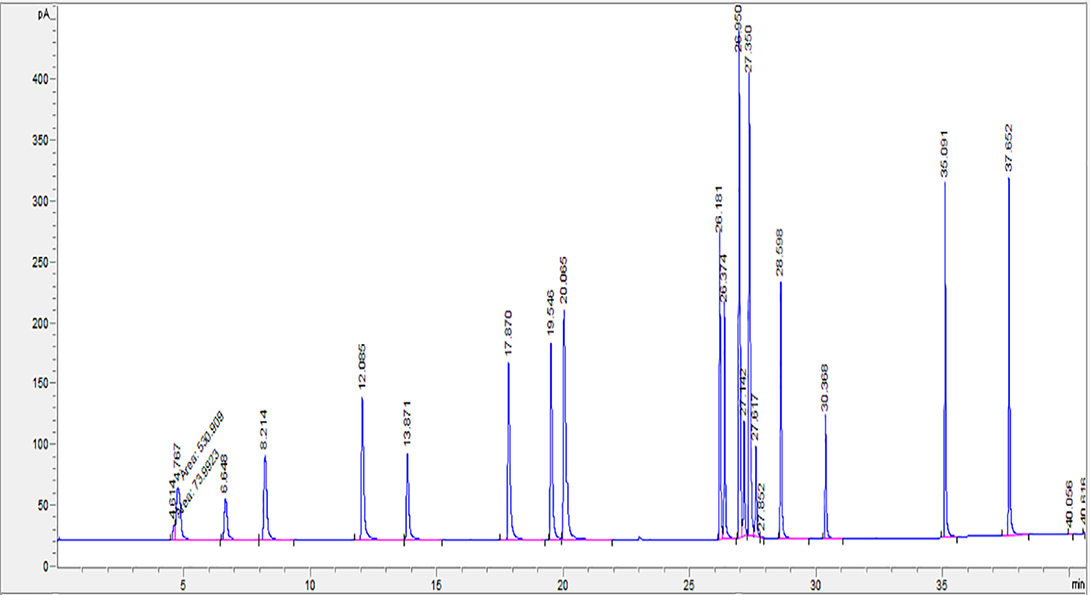Gas Chromatography

Introduction
Gas chromatography is carried out to study the decomposition of fuel based on temperature and the test time. Gas chromatography is carried out on-line for every experiment to obtain speciation data as a result of fuel decomposition. This data is further used to develop or validate chemical kinetic models for the fuel. These chemical kinetic models are the base inputs to computational fluid dynamic (CFD) models of the engines which are then used to study and test their performance.
The High-Pressure Shock Tube lab has eight gas chromatographs with different types of capillary columns which allow us to detect and quantify hydrocarbons , oxygenates , nitrites, sulfuric compounds, permanent gases and several other compounds using the thermal conductivity detector (TCD) and the flame ionization detectors (FID). The lab is also equipped with the state-of-the-art gas chromatography time-of-flight mass spectrometry (GC-TOF-MS) instrument. These ultra-modern instruments coupled with years of experience in gas chromatography allow us to carry out cutting-edge studies and research in fuel pyrolysis and oxidation.
Gas Chromatographs
Agilent Technologies 7890B (2 x FID)
Agilent Technologies 7890B (TCD+ FID with Ni-Cat)
Agilent Technologies 7890A (FID + TCD with Ni-Cat)
Hewlett-Packard 6890 (2 x FID)
Hewlett-Packard 6890 (FID + TCD + Ni-Cat)